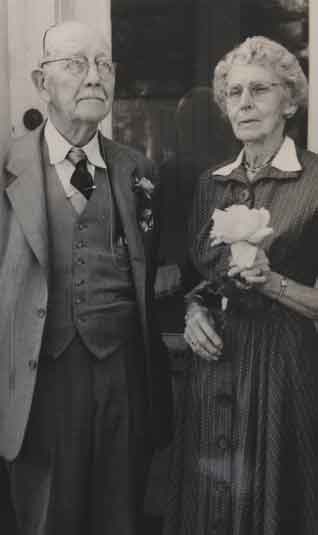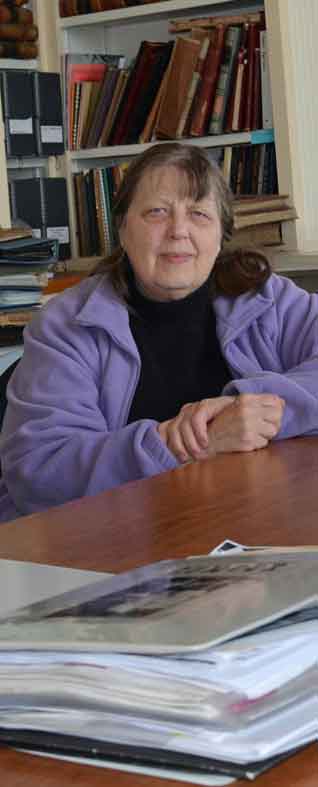Columnists
A Precious Lesson Across the Divide
SARBPREET SINGH
The Diaspora Diaries, Volume 2
It’s early morning on the 4th of October, 2013. I walk up the steps of the Astoria Historical Society. Half a mile to my left the mighty Columbia river flows into the ocean.
I am in Astoria (Oregon, USA) to join the Centennial celebration of the founding of the Ghadar party. What really brings me to Astoria is a thirst for stories. Stories of our Sikh ancestors who walked these very streets a hundred years ago. American pioneers in their own right, whose stories have been forgotten by the land they embraced ... and by the land they helped liberate.
Inside awaits the Mage of Astoria. A weaver, not of spells, but tales. Tales of valor and tales of violence. Tales of grace and tales of shame. Some saddening, others uplifting. Stories of the quotidian and the exotic. All, uniquely interesting.
She is Liisa Penner, the archivist at the Clatsop County Historical Society and Astoria’s keeper of stories.
Liisa, a shy, charming woman, has worked for 28 years at the Historical Society archiving the history of the community and is the editor of their quarterly journal, CUMTUX.
She welcomes me, letting me into the archives an hour before the Heritage Museum is scheduled to open and places before me two thick folders bulging with census records, police records, declarations of intent to immigrate, photographs, articles, records of divorce proceedings and commercial lawsuits. The flotsam of forgotten lives.
And stories! So many stories!
And here is just one of them:
Mr. August Hildebrand was a pillar of the community in the early 1900s in Astoria. A cultured man of German origin, he ran a department store and ended up interacting with the Sikhs -- then misdescribed as ‘Hindoos’ -- who lived in Astoria. He tells an engaging story about his dealings with one of them who walked into his store.
“Years past, when Mr. A.B Hammond’s Saw Mill in Upper Astoria was running full blast, he employed among numerous people, a lot of Hindoos who lived in a colony by themselves in Alderbrook. They were the tall, well built, athletic people of India. Many of them traded in my store. Their standard of living was not as high as the European whites, nor the Americans; their wants were few”.
These men that Hildebrand wrote about were largely Sikh immigrants, most of whom ended up in Astoria, Oregon, after serving in the British Armed forces in the Far East. These largely uneducated men who worked as laborers in businesses like the Hammond Mill, were the driving force behind organizing the Ghadar Party, which shook the foundations of the British Empire and inspired a generation of freedom fighters in British India.
Hildebrand’s story continues:
“Among these people was an individual showing a superior intelligence. He did not wear the customary turban and could be likened in appearance to a Greek. He had a friendly disposition and appeared eager for information and knowledge.
“In the course of time he kept on friendly terms with me. I found him very interesting, especially in the explanation of world affairs and religious understanding. During the different conversations he informed me that he was a Mohammedan. He had an understanding of the Christian faith and was also aware of Martin Luther”.
This man -- also misdescribed a ‘Hindoo’, just like the Sikhs -- actually turned out to be a Muslim named Ghulam from Afghanistan and one day he surprised Hildebrand by asking him to take care of his (Ghulam’s) savings. Hildebrand
somewhat reluctantly agreed to hold Ghulam’s money for him but felt that it would only be proper to offer him some interest.
To his surprise, his offer elicited an angry response from Gulam, who was affronted at the notion of accepting interest because in Hildebrand’s words, “a Mohammedan, living under the rules, commandments and laws of Moses, cannot use and does not accept interest on money”.
Hildebrand’s reminisces capture in a bittersweet manner, how unlikely and fraught with peril this cross-cultural exchange was, given the huge gulf of language, religion and culture that separated relatively affluent Americans of European origins and the Sikhs et al of Astoria.
“I always was in an expectant mood as to what was to happen or what the idea was in trusting me with his money. I was apprehensive and distrustful. At one time he came and gave me a little vial of rose oil, stating that it was from his native land and said that it was for my ‘lady’. I did not know Oriental customs and had heard of Oriental wiles, etc., and had somewhat of an aversion to accepting presents for ‘my lady’, but took it in an expectant mood.
“At another time he brought me Oriental slippers, those that are turned up at the toes and form a canoe. They were made of leather, richly embroidered with gold braid, again telling me they were for ‘my lady’. I did not wish to be very intimate with him as I did not know the meaning of all this.”
At one point, Hildebrand decided to reciprocate with a gift of his own, going to a nearby bakery to buy an angel cake for Gulam, only to be questioned if the cake was made with ‘hog fat’, which of course would have made it anathema to a Muslim!
“In time the money gathered in amount. I was continually apprehensive as to the finality. The intercourse remained the same throughout all this time, very courteous.”
One day Gulam came to the store and asked for his money, which by then added up to eight hundred dollars, a vast sum in those days with the following words :
“Mr. Hildebrand, you got my money and I want my money. I want to go away, possibly home. I know you have not the money all in hand. This week you get it, or next week, you need not worry. When you have it all together, I come and get it.”
Mr. Hildebrand felt an immense sense of relief! In his own words, “it all sounded like the voices of sweet angels from Heaven … to my mind came the anxiety of the white man when he is in an expectant mood about money. This man from the Orient who had been brought up in an entirely different civilization had that calm confidence that his money was there”.
In a week, Ghulam had taken his money and left, having enriched Hildebrand profoundly, as he so eloquently recounts:
“This man, working in the rain, snow and slush in Hammond’s Lumber Yard, gave me, a merchant of Astoria, the greatest lesson in Christianity that I have ever received. I was, and am dumbfounded as to a Mohammedan’s conception, living up to them in a strange country and under trying circumstances, and am thoroughly ashamed of my distrust toward him.
“Nevertheless, with all this experience, I glory in the fact that a Mohammedan has given a Christian, a religious lesson that he shall never forget.”
October 8, 2013




